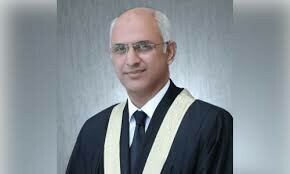 |
ISLAMABAD: A former director general of Inter Services Intelligence (ISI), retired Lt Gen Hameed Gul, died on Saturday night at a hospital in Murree after suffering a brain haemorrhage. He was 79.
The state-run Pakistan Television quoted the head of Combined Military Hospital, Murree, as confirming the death of Mr Gul, who had been visiting the hill station with his family members.
Mr Gul served as the ISI chief from 1987 to 1989. He was considered to be the most powerful DG ISI. His name was included among those military officers who had allegedly played a role in efforts aimed at forming the Islami Jamhoori Ittehad in 1988 to put together a political alliance against Pakistan People’s Party led by Benazir Bhutto. Gen Gul also played an important role during the Afghan war and he was a staunch supporter of Pakistan’s role in the Afghan war against Russia. He was known for his strong anti-India feelings.
Published in Dawn, August 16th, 2015
On a mobile phone? Get the Dawn Mobile App: Apple Store | Google Play













































